
Writer
By the notes of Fiáth Pompeiusz, the one-time friend of Kapa and Pepe, Professor Szirtes has solved the secret of the time machine, and he realizes the invention relying on "special" H2O. Kapa and Pepe shall return by it into the past in order to set time right, which is out of joint, that is, to correct history, to save King Louis II, and prevent the Mohács Disaster. Pepe yields to the not too tender persuasion to enter upon the great journey through time, dies and revives, and they arrive at the battlefield of Mohács in time. Kapa films the events. The Turks win and cut off the king’s, Pepe’s, head, still the Hungarians dictate the peace treaty. Kapa and Pepe want to return, they fill the time machine up with water from the well, yet it won’t start. Even so Kapa and Pepe hover over Budapest and quarrel.

Himself
This time, Kapa and Pepe are first of all prisoners of war – and convicts taken to forced labor service, Jews, Hungarian soldiers, German soldiers. Once they are to be executed, then again they are to perform executions. The film tells in spectacular episodes about the fact that in the past more than one century and a half we kept marching from war to war; occupation and liberation turned out to be indifferent, and why couldn’t the Jews execute the SS-guys? Our heroes hover about dilapidated barracks, then again on the bridges of the capital they guess whose satellites or eternal friends for all times we might be just now. In the cupboard, among the preserved fruit bottles, Stalin is still hiding. The authors of the film are cited before court, then in a showcase hospital they are waiting for the end to come. A Soviet soldier-maid closes the film with a Péter Nádas-quote.

Writer
This time, Kapa and Pepe are first of all prisoners of war – and convicts taken to forced labor service, Jews, Hungarian soldiers, German soldiers. Once they are to be executed, then again they are to perform executions. The film tells in spectacular episodes about the fact that in the past more than one century and a half we kept marching from war to war; occupation and liberation turned out to be indifferent, and why couldn’t the Jews execute the SS-guys? Our heroes hover about dilapidated barracks, then again on the bridges of the capital they guess whose satellites or eternal friends for all times we might be just now. In the cupboard, among the preserved fruit bottles, Stalin is still hiding. The authors of the film are cited before court, then in a showcase hospital they are waiting for the end to come. A Soviet soldier-maid closes the film with a Péter Nádas-quote.
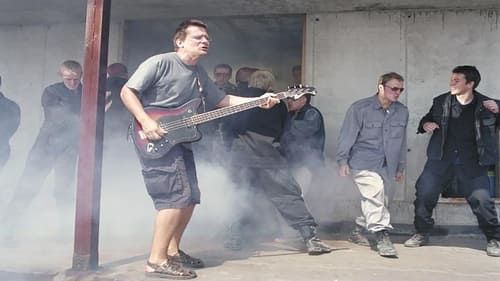
Writer
Waiters’ competition at Heroes’ Square in the late thirties. Dressed as waiters, Kapa and Pepe awake in the bronze chariot of the millennial sculpture group. They drive along the Danube promenade, and on the concrete reinforcement of the demolished Budapest rondella hotel they get involved in a showdown of political background. In the burnt-down Sports Hall the waiters train for a last supper, Pepe and Kapa run around the big laid table with trays in their hands. While doing so, Pepe keeps crying out: "I am the best one, I am the most beautiful one, I am the king, I am the god..." Sitting in a boat on the Danube, a ship goes past them, and the Niagara falls, majestic and breathtaking, resound in their ears. On each passing away something new will come to life – as rapped by Sub Bass Monster.

Writer
Kapa, Pepe and Mesi would like to buy a scrapyard of trains, to start a nostalgia train and earn a lot of money. The capital to start with they want to get from grandpa, who has come home from America with a suitcase full of money. Everybody wants Mesi to approach the old man, because she is the only one he would speak to. But Mesi is more concerned with the idea that she wants a child, by now from anyone, while Pepe is jealous. Kapa’s alleged son emerges, with the mafia behind him: they, too, are eager to get grandpa’s money. After threats and blackmailing, poisoned apples are sent, with only one side of them poisonous. Those dead, by the way, are resurrected by the sound of a song. At last, nobody manages to get the money, but it wouldn’t make sense anyway: it’s all fake. The Statue of Liberty, however, turns out to be blind.

Himself
In the Kerepesi Street cemetery, three grave diggers contemplate the fate of the world, then they step out of this role and in a sequence of episodes they play the typical figures of contemporary Hungarian reality, the fat cat, the swashbuckler, the victim, underworld chieftains, and present little absurd dramas of love, marriage, friendship, public order and legal safety. The author and the film director walk among them all the time, contemplating, laughing at their plays. The stories starting from the graveyard and returning there warn of the inevitability of death. The author and the director (Gyula Hernádi and Miklós Jancsó) wisely make friends with death.

Writer
In the Kerepesi Street cemetery, three grave diggers contemplate the fate of the world, then they step out of this role and in a sequence of episodes they play the typical figures of contemporary Hungarian reality, the fat cat, the swashbuckler, the victim, underworld chieftains, and present little absurd dramas of love, marriage, friendship, public order and legal safety. The author and the film director walk among them all the time, contemplating, laughing at their plays. The stories starting from the graveyard and returning there warn of the inevitability of death. The author and the director (Gyula Hernádi and Miklós Jancsó) wisely make friends with death.

Writer
When Hungary's newest prime minister is shot and killed at a reception, the resulting investigation is necessarily swift and comprehensive. This compelling political thriller uncovers two prime suspects: the woman who guns the leader down, and a man who was friends with both the prime minister and his murderer. Using video surveillance footage, as well as other more artful and symbolic imagery, the noted "visualist" director Miklos Jancso, who is known for his craft in getting his points across non-verbally, combines fantasy and reality in a highly ironic manner.

Screenplay
Янчо в этом фильме дает крайне пессимистический прогноз относительно актуальных событий современности. Одной из сюжетных линий картины становится просмотр телевизионных новостей из Москвы, свидетельствующих о политическом хаосе. В стране произошел политический переворот, власть оказывается в руках некоего Комитета спасения, Михаил Горбачев арестован и казнен. Вскоре в Венгрию вновь входят советские танки и всех убивают.

Writer
Jancso emphasizes highly evocative and ambiguous imagery over dialog or exposition. Here he seems primarily interested in showing the painful, stunted lives of Hungary's intellectuals, who are shown as remaining silent and ineffectual during various political crises. There are several action sequences involving chases and shootouts, but since there's no clear narrative we're not sure how they relate to each other or to anything else. The film is, however, visually fascinating, with shots of police cars, horses, and naked bodies juxtaposed and extensive use of multiple video imagery.
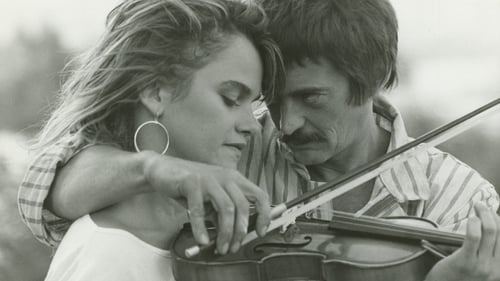
Screenplay
Zoltai is a Hungarian professor who returns home after a visit to the United States. Following a television interview, he commits suicide and leaves a note for his longtime friend Dr. Bardocz. The doctor and Zoltai's colleague Komindi join the police in investigating what drove the man to suicide.

Writer
1958, Budapest. Gerencsér is a skilled worker at the abattoir, his wife left in 1956. They falls in love with the beautiful Mrs. Hász at the personnel management department, but they only date secretly because of a former relationship of Mária. They go on holiday and travel to the Mátra, just the two of them.

Writer
The film the was made of OMEGA band's November 1982 concert in the Budapest Sportstadium.

Writer
A historical drama set in the 1400s, a young man sent to Italy but is forced back after his father's mysterious death.

Writer
Anna is a stylist in Budapest. One day at a restaurant, she thinks she recognizes Marie Aubier, a 22-year-old French girl, her own daughter.

Writer
Драма повествует о сложных этапах становления венгерской государственности. Венгерская Советская Республика 1918 года и Вторая мировая война — два исторических излома, два периода бед и надежд.
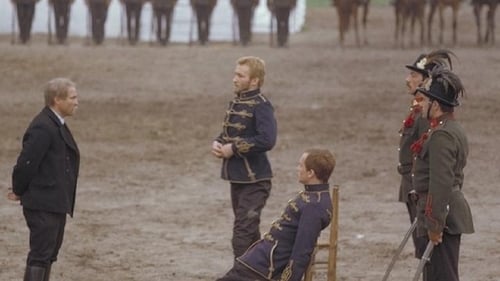
Writer
Первая мировая война. Два сына крупного венгерского землевладельца Жадания отправляются на фронт. Они храбро сражаются и полны желания победить. Но война длится слишком долго, и солдаты больше не хотят воевать. В части, где служат братья, вспыхивает бунт. Старший брат Иштван приказывает расстрелять каждого десятого солдата. Вскоре в Венгрии происходит революция. Но новая власть продержалась недолго. В стране свирепствует террор, и братья принимают в нем активное участие. Но в душе Иштвана происходит переоценка ценностей, он пытается порвать со своим прошлым..

Writer
The man is promoted and given a new assignment at his work-place. At home, he stares at a video-cassette: it portrays his wife's face in countless versions, she is sometimes simply beautiful, then unfathomable, but it is mostly a sad, closed, lonely face.

Novel
A World War II-style "war game" setting the wealthy customers against skilled mercenaries goes awry when the simulated war gets too real.
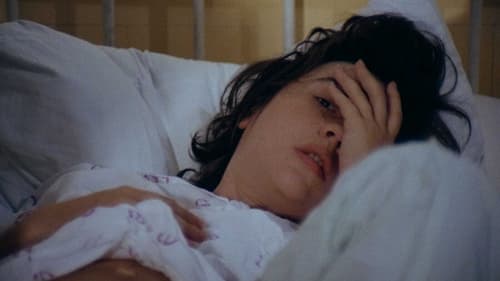
Writer
Village-girl (Juli Kovács) arrives in the city to work in a factory. The works manager (János Bodnár) sets his eye on her, but at first the girl refuses his advance.

Writer
When middle-aged Kata realises that her life will only be complete if she has a baby of her own, her longstanding-but-married boyfriend Joska refuses to comply. But by developing an unlikely friendship with the angst-ridden teenage orphan Anna, who is also involved in a controversial relationship, Kata discovers aspects of herself, and her role as a woman, that have gone unexamined throughout her entire, lonely life.

Writer
The royal summary court sentences Sallai Imre and Fürst Sándor to death on charges of attempting to uproot the state and the social order. The film, the story of which takes place in 1932, enlarges the moment of delivering the death-sentence. Sallai, preparing for his death, envisions the people and the events that have been decisive for his life.
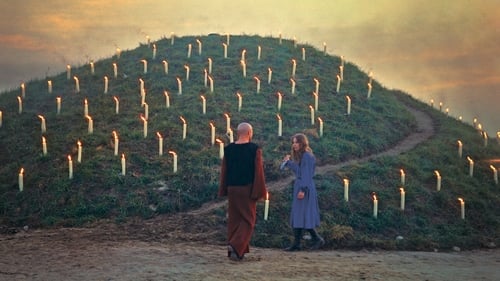
Writer
Минуло 15 лет, как убили Агамемнона. Его убийца Эгист отмечает очередную годовщину правления. В устроенный по такому случаю День Правды каждый может сказать Эгисту все, что о нем думает. Но народ безмолвствует. Эгист приказывает говорить правду, а в ответ слышит лишь похвальбы. Бунтовать пытается только Электра, дочь Агамемнона.
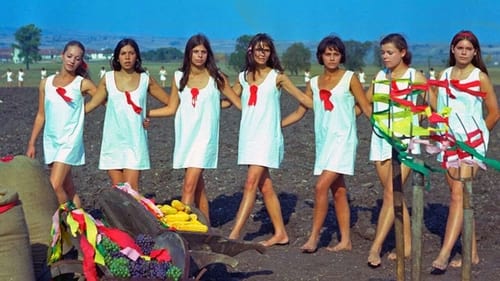
Writer
Историческая драма о крестьянском восстании 1888 г. Этот фильм многие специалисты называют творческим пиком Миклоша Янчо. И не случайно, что, несмотря на острейшую конкуренцию, он был отмечен премией МКФ в Канне за режиссуру в 1972 году. «Красный псалом» можно выделить за наиболее последовательное выражение любимой стилистики Миклоша Янчо, сочетающей революционную форму киноязыка и сложнейшие моральные темы, связанные с обществом и революциями.
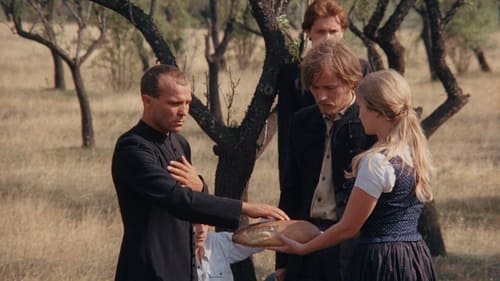
Writer
Фильм о подавлении революции 1919 года и возникновении фашизма в Венгрии. Отряд революционной армии совершает налет на деревню, оставив в живых только священника, который решается жестоко отомстить убийцам...

Writer
The preparation, in Hungary, of the assassination in Marseilles of King Alexander of Yugoslavia in 1934.
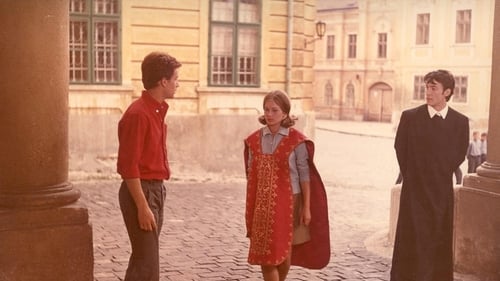
Writer
Paralleling the dramatic student protests and riots that were exploding across the world in the 1960s at the time the film was made, The Confrontation is a story of protest and rebellion in 1947 Hungary when the Communist Party have just taken power. Jancsó's first colour film is another virtuoso display by a director at the peak of his powers, and eloquently explores the complex issues and inherent problems of revolutionary democracy.

Writer
Осень 1919 года. Венгерская Социалистическая революция пала под натиском хортистской армии. Остатки сопротивления жестоко подавляются. Действие фильма происходит на хуторе, затерянном в степи.
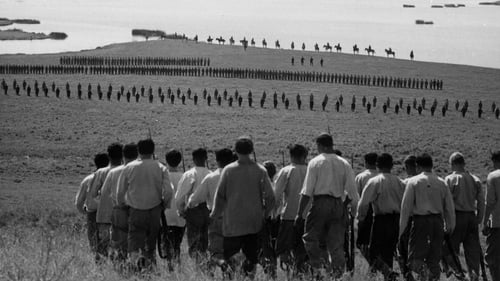
Writer
Об участии венгерских красногвардейцев в гражданской войне в России. Разбит один из венгерских отрядов. Молодому бойцу Ласло удается бежать в монастырь, где расположились венгры. Но врывается отряд белых и расстреливает борцов за революцию. Однако татарину Чингизу, венграм Ласло и Андрашу, а также русскому матросу удается вырваться за пределы города…

Writer
В Венгрии конца 60-х годов XIX века подавлено национальное движение под предводительством Кошута. Восстановлено господство Австрии, но партизанская война продолжается. Чтобы окончательно уничтожить повстанцев, австрийская армия окружает большую группу подозреваемых и заключает ее в неприступный форт. Предполагается, что среди заключенных находятся и лидеры повстанческого движения, но опознать их никак не удается. И тогда к части заключенных применяются самые вероломные формы насилия для получения необходимой информации…

Writer
Весна 1945 года. В последние дни освобождения Венгрии встретились русский солдат Коля и пленный венгр-гимназист Йошка. Дружба с Колей помогла Йошке правильно понять и оценить происходящие события.
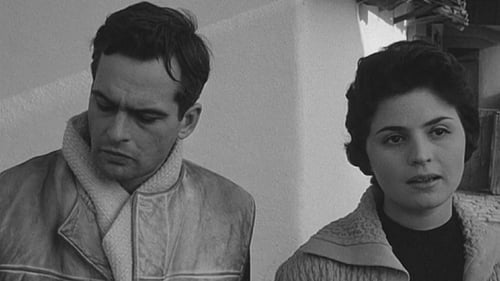
Writer
Фильм повествует о нескольких днях из жизни доктора Ярома. Иллюстрация нравственного кризиса героя, который к 32 годам оказался в полном внутреннем одиночестве и растерянности. Чтобы найти ответы на мучающие его вопросы, он отправляется в деревню, откуда он родом. В окружении старика-отца, старшего брата и бывшей возлюбленной, которую он предал, Яром пытается переосмыслить свою жизнь.

Screenplay
Фильм повествует о нескольких днях из жизни доктора Ярома. Иллюстрация нравственного кризиса героя, который к 32 годам оказался в полном внутреннем одиночестве и растерянности. Чтобы найти ответы на мучающие его вопросы, он отправляется в деревню, откуда он родом. В окружении старика-отца, старшего брата и бывшей возлюбленной, которую он предал, Яром пытается переосмыслить свою жизнь.































